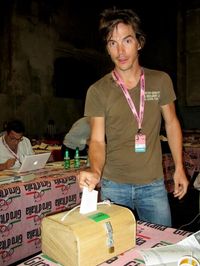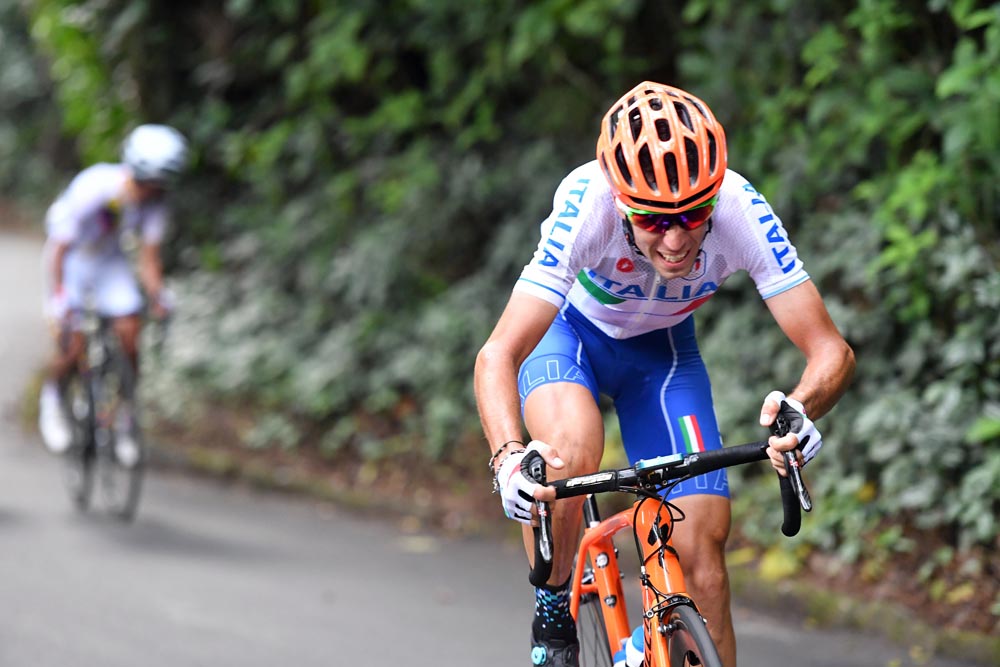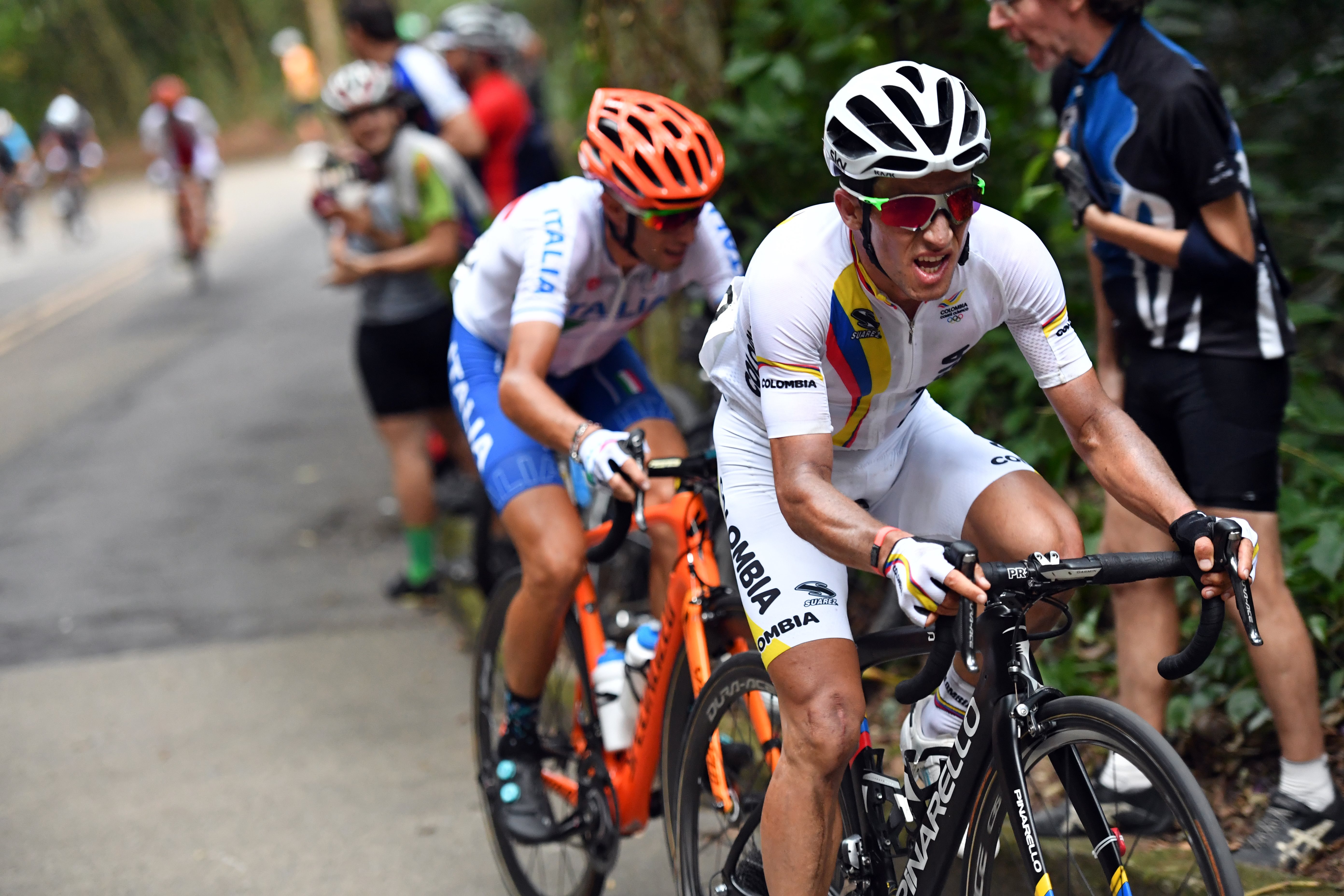Mario Cipollini: Nibali should have offered Henao money to help him win Olympic gold
The former world champion says Vincenzo Nibali should have got rival Sergio Henao on-side in the finale of the Olympic Games road race by offering him money


Italian Vincenzo Nibali attacks on the final Vista Chinesa climb during the men's road race. He would go clear with Sergio Henao and Rafal Majka, but be involved in a hard fall on the descent with Henao. Nibali's race ended with a double fracture to his left collarbone.
Vincenzo Nibali should have offered Sergio Henao money in the closing moments of the Olympic road race this August, says former world champion Mario Cipollini.
Nibali, who won the Giro d'Italia this May with trade team Astana, escaped in the Rio road race with Colombian Team Sky rider Henao and Pole Rafal Majka (Tinkoff). On the final descent at 12 kilometres remaining, Nibali and Haneo lost control and crashed.
>>> Dr Hutch: a love/hate letter to the Olympic Games
Belgian Greg Van Avermaet (BMC Racing) caught Majka in the closing kilometres and won.
"I don't understand why [Peter] Sagan didn't race instead of trying to win the mountain bike race," Cipollini told L'Equipe newspaper. "Maybe he could've done well like Van Avermaet. That said, Van Avermaet was able to win because Vincenzo Nibali didn't manage the finale well when he was with Majka and Henao.

"I understand if he was risking it if he was on his own to up his advantage. But not at halfway down the descent, in the middle of the trees, where the road is shady, damp and slippery. It would've been sufficient to offer a little money to Henao and the deal would've been done. Henao is no longer just an average rider, a win in the Olympics wouldn't change anything for him."
Cipollini dominated sprint in the 1990s and early 2000s. In 2002 alone, he won Ghent-Wevelgem, Milan-San Remo and the World Championships in Zolder, Belgium.
The latest race content, interviews, features, reviews and expert buying guides, direct to your inbox!
"This type of negotiating always existed. It's not the victory that you're buying, but collaboration," Cipollini added.
"In Zolder, when I won, they talked of money with a team that didn't have a chance to win and we offered them a reason to be there. In the case with Rio, for 100,000 dollars, Henao would've have taken care of Majka. And Nibali would've have returned to Italy with gold around his neck. "For someone who just won the Olympic road race, 100,000 would not be much."
Nibali has won all three Grand Tours and Il Lombardia in his career, but had to abandon his Olympic hopes with a broken collarbone. Next year, the Italian will switch from team Astana to Bahrain-Merida.
In the last Olympics, some accused Alexandre Vinokourov paying Rigoberto Urán for the victory, who were riding that season for Astana and for Sky as their respective trade teams.
Cipollini was investigated for possible links to paying for doping products back in 2013. Italian newspaper La Gazzetta dello Sport linked him via code name 'Maria' to the Operación Puerto doping scandal. The article claimed he used Transfusions, EPO, hormones and paid €130,000 to Eufemiano Fuentes from 2001 to 2004.
Gregor Brown is an experienced cycling journalist, based in Florence, Italy. He has covered races all over the world for over a decade - following the Giro, Tour de France, and every major race since 2006. His love of cycling began with freestyle and BMX, before the 1998 Tour de France led him to a deep appreciation of the road racing season.
